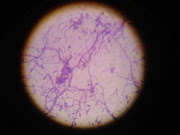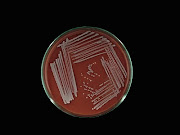Proposal accepted by USAID
Project Summary:
Nepal is an
agricultural country and cow farming is the major economic sources for the
Nepalese people. In the recent days, cow farming is developed as the industry
in different parts of the country and is higher in the hilly regions. The
current study is targeted to screen the gastrointestinal parasites of the dairy
cows from different hilly regions of the Nepal in order to access their role in
the milk production. Three districts namely Dhading, Kavrepalanchok and
Sindupalchok will be selected for the study which provides 75% milk supply in the
Kathmandu valley. A total 60 stool specimens of the cows will be collected and
transported to the laboratory of Kantipur College of Medical Science for parasitological
investigations. The stool samples will be concentrated by both sedimentation
and floatation techniques to reveal the helminthes and protozoan parasites
respectively. The burden of parasite will be estimated by Egg count Per Gram
method using McMasters. 50% of infected cows will be dewormed with oxyclozanide
plus levamasole bolus consulting with veterinary doctors. Remaining 50%
infected cows will not be dewormed. However all cows will be supplied with
minerals throughout the study period. The housing conditions, dietary intake, and
health status of all cows will be observed regularly and tried to maintain constant.
The temperature, relative humidity, environmental conditions will be recorded
using standard questionnaire. The amount
of milk yielded by each cow will be recorded by measuring cylinder for 30 days.
The quality of milk from those cows will be obtained using Lactoscaner in the
first and the last day of study period. All data will be analyzed using
statistical tools with the help of statistician. The
finding of the study will be helpful to prevent the economic losses in the
cattle industry by employing prior strategies for the control of these
gastrointestinal parasites.
Keywords:
Dairy
cow, intestinal parasites, Egg count per gram method, Lactoscaner, milk yield























0 comments:
Post a Comment